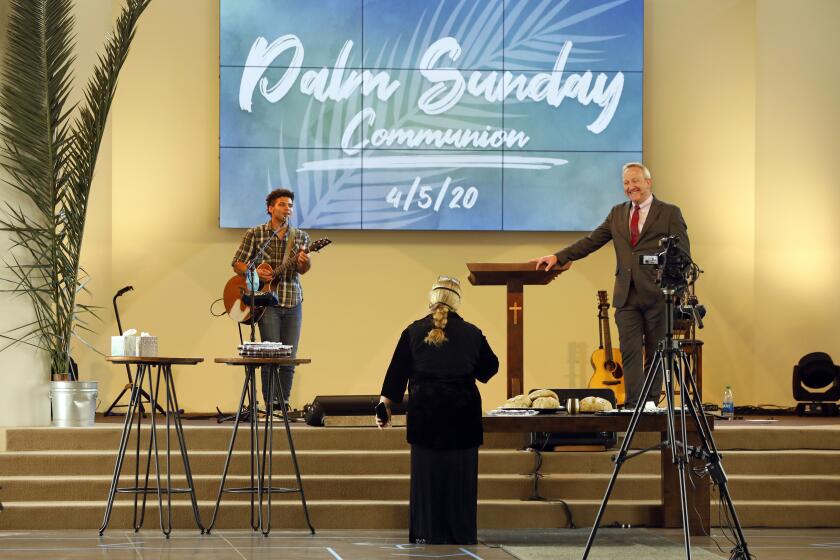How the pursuit of justice in the Seal Beach mass shooting forged an unlikely friendship
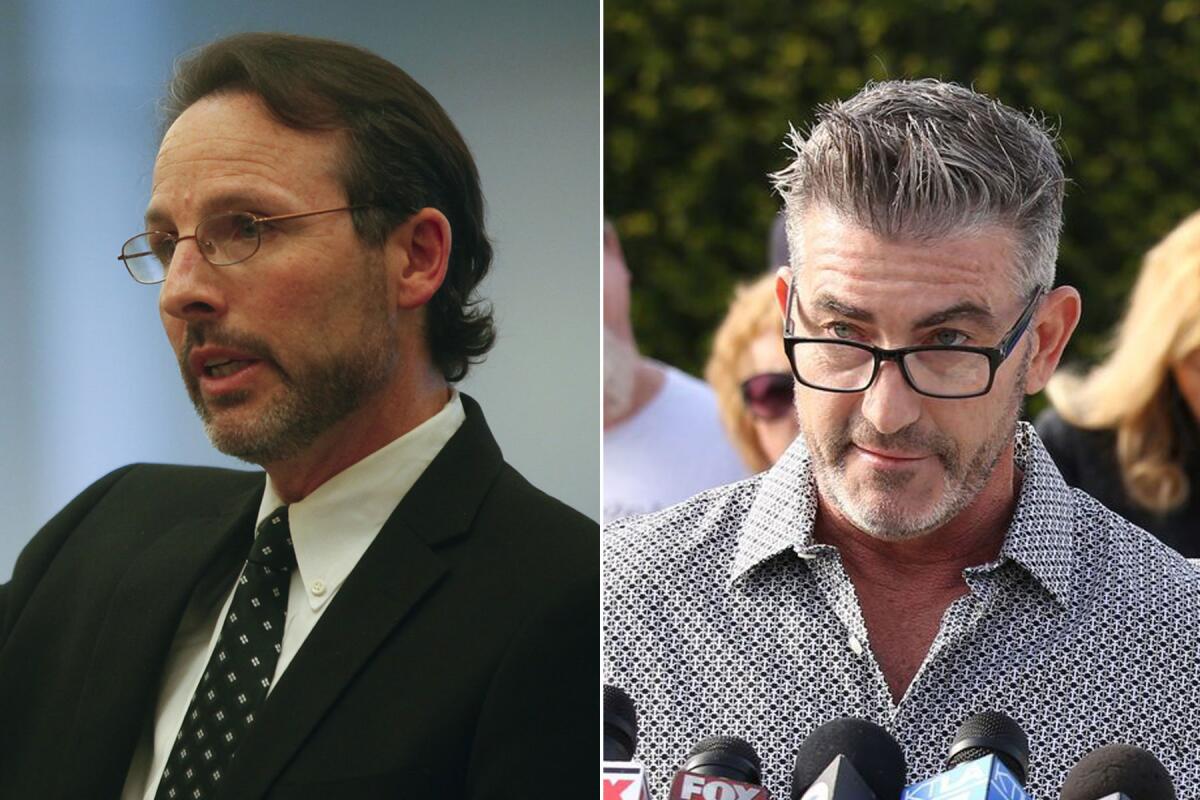
Paul Wilson stood at the lectern of the downtown Los Angeles hotel, pulled a speech out of his jeans, and prepared to honor the man who helped spare the life of his wife’s murderer.
The moment, eight years in the making, began on an October day in 2011 when Scott Dekraai walked into a Seal Beach salon. Once inside, he unleashed the worst mass shooting in Orange County history.
Eight dead, including Christy Wilson, slumped in a hairdresser chair with two bullet wounds.
The man tasked with representing Dekraai was Scott Sanders.
Wilson loathed him. He ripped Sanders in the press, questioning his very morality. The physical differences between the grieving husband and the public defender only magnified his contempt.
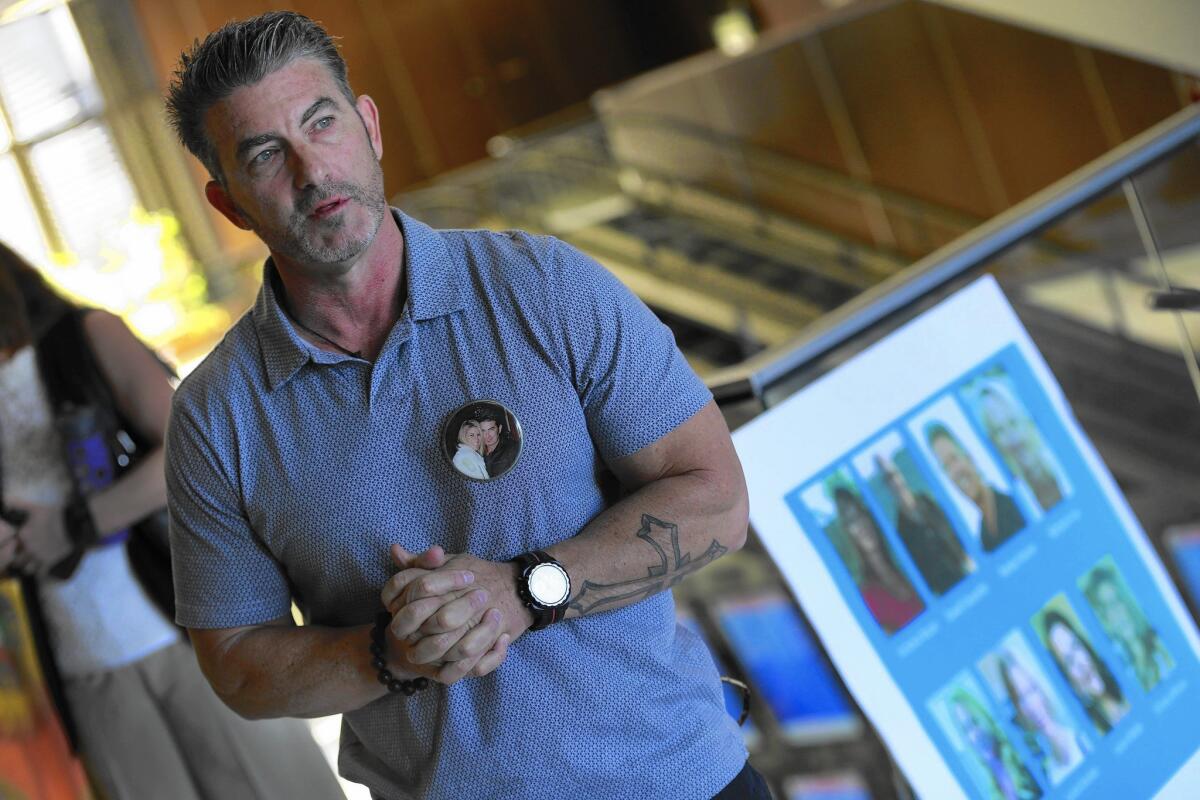
Muscular, tattooed and sporting an impressive pompadour, Wilson seemed pulled from the mosh pit of a Social Distortion concert. Sanders wore wire-framed glasses, had tousled hair and a splotchy, graying beard. Wilson oozed Southern California; after a quarter-century here, Sanders still clung to a Chicago accent.
“I thought Scott was a scumbag, a weaselly little guy,” Wilson said. “You look at this guy, and I don’t know anyone in my shoes that wouldn’t have hated him as well.”
And yet, there was Wilson last year at the downtown hotel, heaping hosannas upon Sanders to a riveted audience.
“I stand here saying what I once never could have predicted,” Wilson told the Society of Professional Journalists Los Angeles chapter. “Scott Sanders isn’t just someone I’ve come to call my friend. I respect his work ethic, his honesty and his tireless commitment to making the criminal justice system work fairly.”
How that happened is a tale of a notorious crime, the pursuit of justice — for the dead and the accused — and the ways, mostly invisible to the public, that the gears of criminal justice can work. Or not.
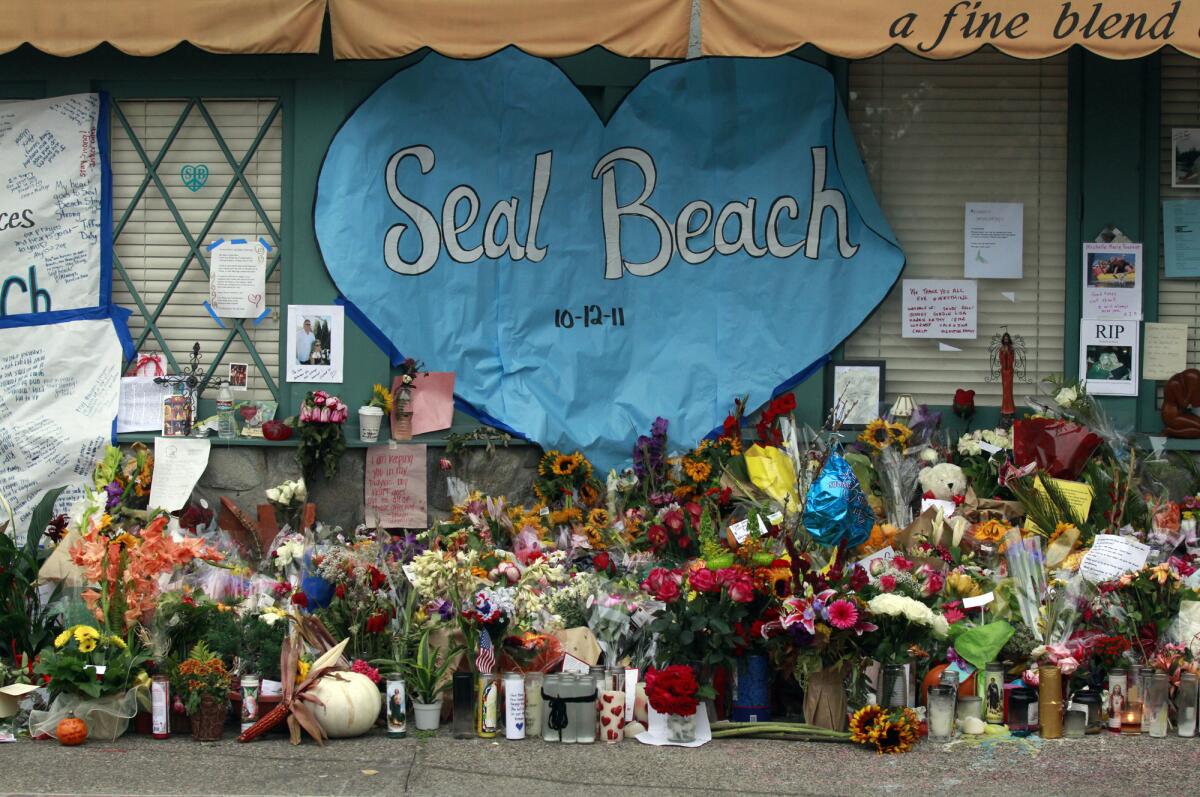
Sanders and Wilson have filmed segments for an Innocence Project campaign against jailhouse informants. They talk or text daily, and hang out with each other’s families.
How that happened involves a years-long imbroglio known as the “snitch scandal.”
While representing Dekraai, Sanders uncovered a jailhouse informant network that he said Orange County sheriff’s deputies ran to mine admissions of guilt out of inmates before they had legal representation. The Orange County district attorney’s office used them to win convictions for decades.
In the beginning, Sanders just wanted to save Dekraai from the death penalty — he had no doubt of his guilt. But then Sanders learned that the inmate his client had talked to also figured in another high-profile murder case he was working. The public defender asked his assistants to pull other cases he had litigated, and noticed that the same inmates kept procuring confessions like some prison prelate.
Sanders requested that Orange County prosecutors be kicked off Dekraai’s case. Then-Dist. Atty. Tony Rackauckas dismissed Sanders’ argument on “60 Minutes” as a “conspiracy” and “false narrative.”

Wilson accused Sanders in court of having “blood on [his] hands” with his tactics, which delayed the trial and, in his eyes, justice for his slain wife.
In early 2014, Sanders filed a 500-pages-plus motion supported by 15,000 pages of exhibits that argued Dekraai couldn’t receive a fair trial because of the longtime use of illegal jailhouse informants by Orange County prosecutors and the Sheriff’s Department. That was the same year Dekraai pleaded guilty to the Seal Beach massacre. Then a slam-dunk case stalled as Orange County Superior Court Judge Thomas Goethals held hearings to let Sanders make his case.
Early on, Sanders knew that Wilson would be outspoken.
“I realized Paul was going to be a voice from the start,” Sanders said. “He’s furious, and rightfully so. And his stare was all daggers, all the time.”
Wilson gladly attacked the public defender in the press, once telling the Orange County Register that Sanders’ motions were “killing us in more ways than one.” In court, Wilson accused Sanders of “destroying us even more than we’ve already been destroyed.”
No moment was too small for Wilson to needle the lawyer. Once, as they waited outside a Santa Ana courtroom, Sanders looked more harried than usual.
“I told him, ‘Hey, you might want to tuck in your shirt to look more presentable,’” Wilson said. “And he gave me this look like, ‘You gotta stop beating me up.’”
But as weeks of delays turned into months, then years, Wilson got suspicious.
He noticed that Goethals, whom he praised as a “compassionate, brilliant man,” kept asking harder and harsher questions of prosecutors. He listened closely as Sanders questioned sheriff’s deputies and prosecutors; the answers sounded to Wilson more like nervous equivocation and blame-shifting than the confident statements of the past. He wondered: Had Sanders been right?
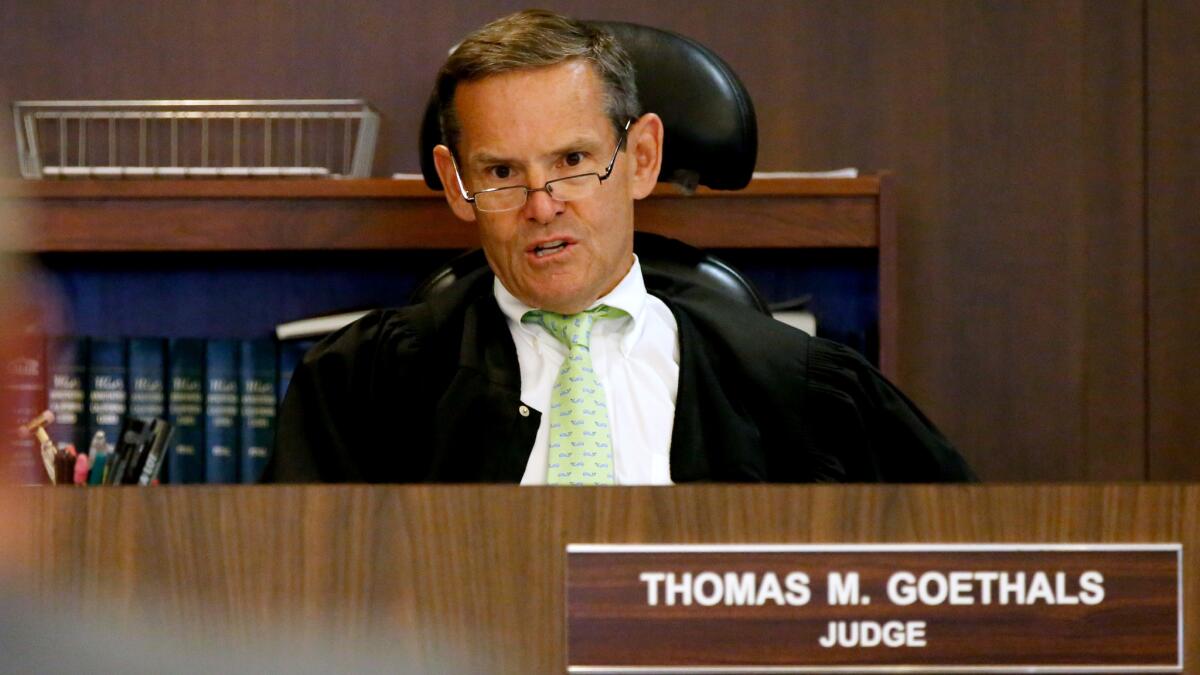
Eventually, Wilson pivoted to criticizing Rackauckas and the Sheriff’s Department. His relationship with prosecutors, once warm, turned chilly. In 2015, Wilson appeared on Al Jazeera America and declared that Sanders was “doing his job above and beyond.”
“I nearly fell over,” Sanders said.
Goethals removed Rackauckas’ entire office from the Dekraai case and sent it to the California attorney general’s office. Wilson increased his public praise of Sanders, but the two still wouldn’t acknowledge each other in court beyond a silent nod from time to time.
“The people who said to hang on to our hate [of Sanders] turned out to be as heartbreakingly inept as you can imagine the criminal justice system to be. Paul eventually saw that,” said Bethany Webb, who sued the Orange County sheriff and district attorney’s office in 2018 over the scandal. Her sister, Laura Webb Elody, died in the Seal Beach massacre; their mother, Hattie Stretz, survived.
It wasn’t until 2017 that Dekraai was sentenced for the killings. Goethals gave him eight consecutive life terms.
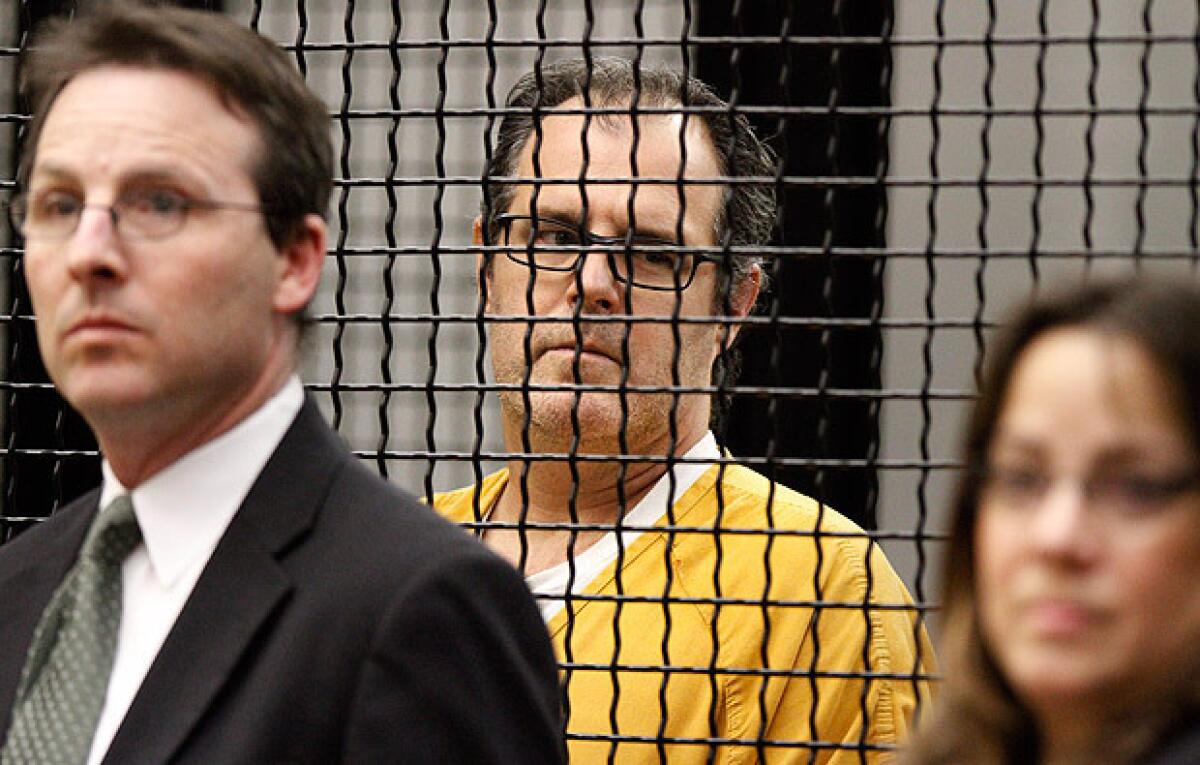
A few days later, Wilson idled in rush-hour traffic. In the years since the shooting, he had met with parents of Sandy Hook Elementary School victims and visited Washington and Sacramento to lobby for gun control.
Now, Wilson called the general line for the Orange County public defender’s office, expecting to leave a voicemail. The line rang once before he heard a familiar voice.
“Hey, Paul, how are you?” Sanders told him. “I kinda had a feeling this talk would happen.”
The snitch scandal upended Orange County politics.
Longtime Sheriff Sandra Hutchens retired instead of facing reelection. Rackauckas, a seemingly indomitable political figure in the county, lost his attempt for a sixth term as district attorney in 2018.
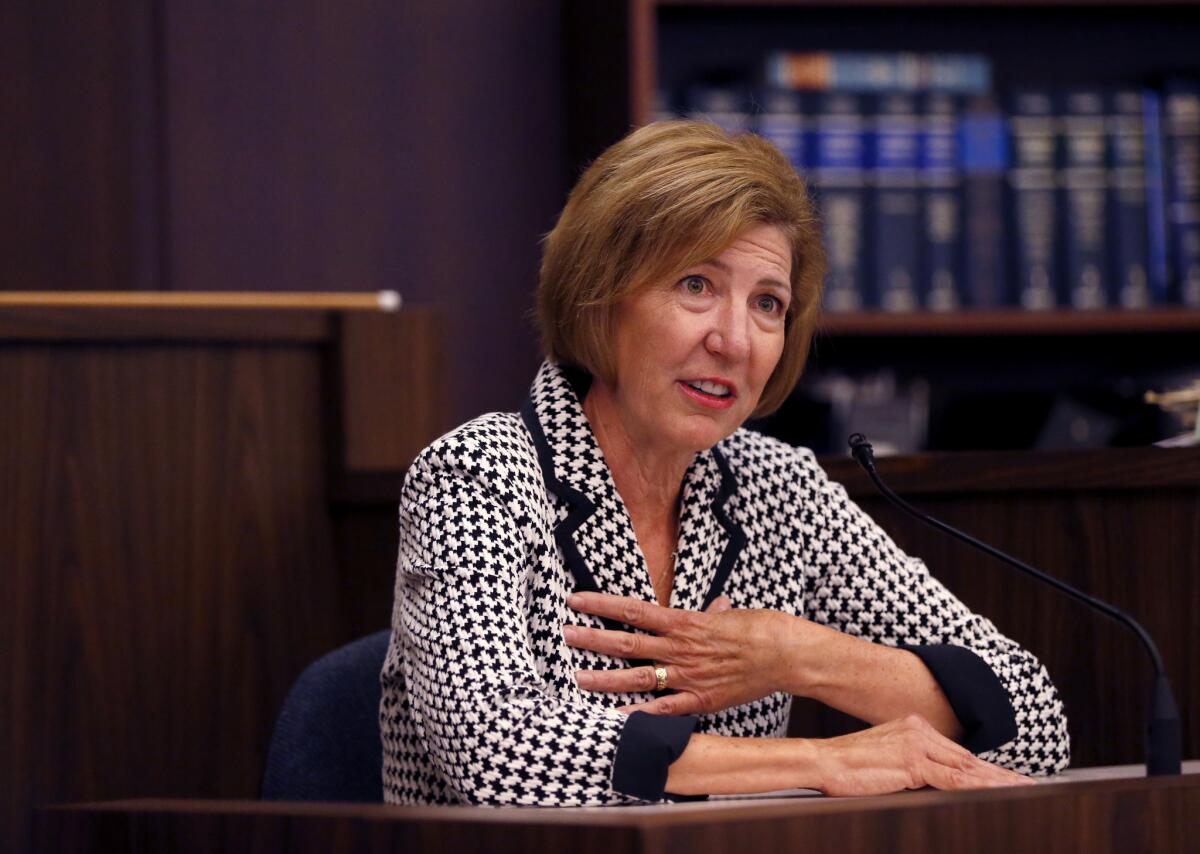
Todd Spitzer, Orange County’s current top prosecutor, said the controversy was “like an anchor pulling us to the bottom of the ocean.” Job applications to the office declined, and the U.S. Justice Department began interviewing prosecutors as part of an investigation.
Spitzer launched his own internal probe in April. A state inquiry started by then-Atty. Gen. Kamala Harris and inherited by the current one, Xavier Becerra, went nowhere.
Wilson, meanwhile, had become Dr. Watson to Sanders’ Sherlock Holmes.
During the day, the 54-year-old apparel executive sits in on court cases multiple times a week to take notes that he shares with Sanders. Wilson’s notes help Sanders, 51, argue in court motions that wrongdoing continues in Orange County law enforcement.
At night, the two make joint appearances before college classes, community groups and legal conferences from Irvine to Utah and beyond.
“There is a spate of reform all over the country in which legislators are taking a closer look at jailhouse informants, inspired by the O.C. debacle,” said Alexandra Natapoff, author of the 2009 book “Snitching: Criminal Informants and the Erosion of American Justice” and co-director of UC Irvine’s Center in Law, Society and Culture. “They are integral to this.”
‘I have never before seen a circumstance where a surviving spouse in a murder case reached the kind of relationship that Mr. Wilson did with Mr. Sanders. It really is unique.’
— — Judge Thomas Goethals
Charlotte Samuels, a Fullerton College political science professor, asked Sanders and Wilson to address a packed lecture hall last spring.
“I wanted my students to be aware that you can still be in public service and be noble,” Samuels said. “They remind me of ‘Mr. Smith Goes to Washington.’ I know it’s idealistic, but it’s there.”
Goethals, who is now a California Court of Appeals judge, said the relationship between the two men is unusual.
“I have never before seen a circumstance where a surviving spouse in a murder case reached the kind of relationship that Mr. Wilson did with Mr. Sanders,” Goethals said. “It really is unique.”
That’s not to say they always agree. Wilson campaigned for Spitzer against Rackauckas despite Sanders’ misgivings.
After taking office, Spitzer promoted the lead prosecutor in the Dekraai case, who later resigned in the aftermath of the federal investigation. The move, along with others, caused Wilson and Sanders to criticize Spitzer. The prosecutor pushed back against Sanders’ critique, saying he was “overreaching” in some of his motions.
But Spitzer resisted criticizing Wilson, saying: “As much as I want to be upset and angry with him, I won’t allow myself to be.” Spitzer called Wilson a “reasonable, honest man who got really screwed by the system.”
Over taco salads at a restaurant in downtown Santa Ana during a courtroom recess, Sanders and Wilson recounted their saga like old pals chuckling over a camping trip.
Their latest dig uncovered a previously unreleased internal audit by the Orange County’s Sheriff Department that found deputies regularly failed to book evidence on time. Spitzer’s office is looking into the matter.
“Paul isn’t a law clerk, but he’s better in some ways,” Sanders said. “He’s a regular citizen who’s listening on another level, because of what he’s been through.”
“You have to understand,” Wilson interrupted. “I’d never been in court before what happened to Christy. So for the first time to be in it, to see the justice system break down the way it did, it’s appalling. That’s why I’m now here.”
More to Read
Sign up for Essential California
The most important California stories and recommendations in your inbox every morning.
You may occasionally receive promotional content from the Los Angeles Times.






